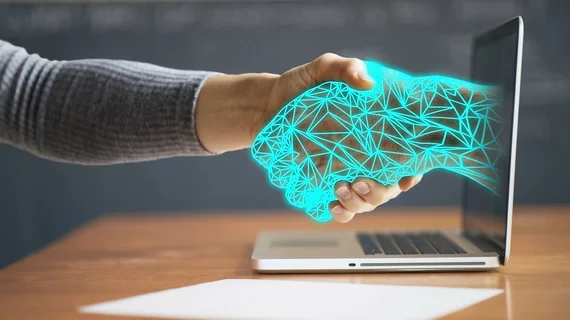2 imaging AI vendors teaming up to present 1 point of sale
A healthcare AI platform supplier headquartered in Scotland is collaborating on marketing with a San Francisco-based AI startup co-founded and -led by a radiologist.
Blackford Analysis and Rad AI jointly announced their strategic sales partnership June 22.
The alliance will allow Blackford to sell Rad AI’s report customization capabilities alongside Blackford’s own offerings for integrating AI into radiologists’ workflows.
Rad AI “automatically generates a customized impression from the findings and clinical indication dictated by the radiologist, using the most advanced neural networks,” the companies explain. “It learns each radiologist’s language preferences from their prior reports, to create an impression that the radiologist can simply review and finalize.”
Radiologist Jeff Chang, MD, Rad AI’s co-founder and chief product officer, says the two companies share the goal of improving efficiency and reducing burnout in radiology practices.
Blackford founder and CEO Ben Panter says radiology “has never been under more pressure, and we believe that harnessing AI makes a real difference.”
Blackford’s corporate offices are in Edinburgh, Rad AI’s in Lafayette, Calif.
Full announcement here.
More Coverage of Blackford and Rad AI:
Intelerad adds Blackford integration to InteleViewer
Radiologist-founded firm using artificial intelligence to alleviate burnout raises $25M
Blackford Analysis Engages with Optos on Ophthalmology Application
Mass General rolls out clinical trial imaging tool powered by Blackford Analysis

